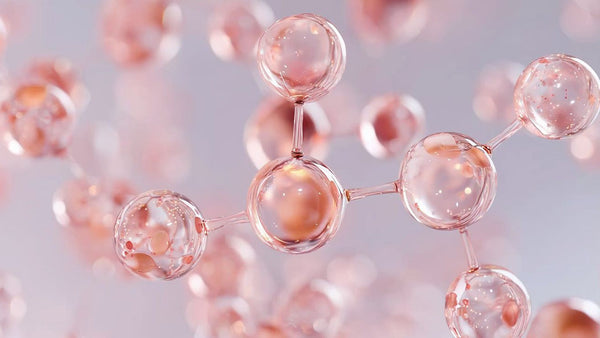Vitamin A (retinol), commonly found in carrots, is known to majorly benefit your skin health. But did you know that retinol has several other benefits for your overall health? If not, you’ve come to the right place. In this blog, we’ll list the top 10 ways in which Vitamin A can benefit your skin and overall health.
Top 10 Ways in Which Retinol or Vitamin A Can Benefit your Skin and Overall Health
Vitamin A can benefit your skin and overall health in many ways. Here’s how:
1. Prevents Premature Skin Ageing
Free radicals promote collagen breakdown, which leads to fine lines and wrinkles or premature ageing. However, by consuming vitamin A-rich foods or supplements, you can prevent collagen breakdown, protect yourself from fine lines and wrinkles, and thus delay premature ageing.
2. Protects your Skin from Sun Damage
Vitamin consumption helps make your skin less sensitive to the sun. This can protect your skin from the harmful effects of the sun, such as pigmentation or sunburns.
3. Strengthens the Outer Layer of your Skin
Vitamin A helps produce healthy cells, which strengthens the outer layer of your skin. This added protection helps your skin fight against pollution, bacteria, and other infections. So, make sure to consume more vitamin A if you want to get firmer skin.
4. Helps Deal With Skin Wrinkles
Retinoic acid or retinol are just the right ingredients that help produce new cells, which promote collagen production. And collagen, in turn, helps deal with skin wrinkles. So, if you’re someone who’s suffering from wrinkles, maybe the topical application of vitamin A will help.
5. Offers your Skin an Even Skin Tone
The topical application of vitamin A might help you deal with dead skin cells and promote the growth of new ones. Furthermore, vitamin A can help prevent pigmentation, which can eventually help you achieve an even skin tone and brighter skin.
6. Helps you Deal with Acne
Acne usually occurs because of skin pores that are clogged with dead skin cells, bacteria, and excess sebum. However, because of vitamin A’s ability to produce new cells, you can reduce the oil production and thus deal with acne.
Also, vitamin A is anti-inflammatory in nature, which can help you deal with the bumps that appear due to acne. So, if acne prevents you from getting smooth skin, go for vitamin A supplements or foods now.
7. Protects your Eyes from Several Issues Such as Night Blindness
Night blindness, also known as nyctalopia, is one of the known symptoms of vitamin A deficiency. Night blindness is a condition wherein the person sees just fine during the day but starts to lose vision as the sun sets. However, vitamin A is known to help you deal with night blindness.
8. May Reduce the Risk of Cancers
Vitamin A plays an essential role in the growth and development of your cells, which makes it capable of relieving different types of cancers. For instance, according to a study, retinoids that are derived from vitamin A are quite effective in suppressing cancers.
9. Helps Improve Immunity
Vitamin A is known to play quite a decent role in enhancing your body’s immune defenses. It helps enhance the mucosal barrier in your gut, lungs, eyes, and genitals that trap bacteria and prevent bacterial infections. Vitamin A is also known to help with white blood cell production, which you may know is your body’s army against any foreign pathogens.
10. May Improve Bone Health
Although vitamin D and calcium are known to benefit your bones, vitamin A also plays an important role. Even a study says that people with low blood levels of vitamin A are more at risk of fractures than the ones who have healthy levels.
Although retinol majorly benefits your skin health, it also has some benefits to ensure overall wellbeing. So, make sure to always include vitamin A in your diet. How can you do that?
Well, you can go for a reliable natural supplement from Wellbeing Nutrition: Melts Multivitamins that comes with vitamin A along with several other amazing ingredients such as magnesium, ginseng, ashwagandha, vitamins D3, K2, C, B-complex etc.
As a whole, Melts Multivitamins can help you meet the nutrient needs of your body and offer you better energy, improved memory, reduced anxiety & stress, a boost in cognition and heart health.
Wrapping Up
Vitamin A is undoubtedly one of the essential nutrients with loads of benefits to offer. You can always include vitamin A in your diet by consuming Melts Multivitamins.
References
Gilbert C. (2013). What is vitamin A and why do we need it?. Community eye health, 26(84), 65. https://www.ncbi.nlm.nih.gov/pmc/articles/PMC3936685/
Alfred Sommer, Vitamin A Deficiency and Clinical Disease: An Historical Overview, The Journal of Nutrition, Volume 138, Issue 10, October 2008, Pages 1835–1839, https://doi.org/10.1093/jn/138.10.1835
Sankaranarayanan, R., & Mathew, B. (1996). Retinoids as cancer-preventive agents. IARC scientific publications, (139), 47–59. https://pubmed.ncbi.nlm.nih.gov/8923019/
Huang, Z., Liu, Y., Qi, G., Brand, D., & Zheng, S. G. (2018). Role of Vitamin A in the Immune System. Journal of clinical medicine, 7(9), 258. https://doi.org/10.3390/jcm7090258
Bolke, L., Schlippe, G., Gerß, J., & Voss, W. (2019). A Collagen Supplement Improves Skin Hydration, Elasticity, Roughness, and Density: Results of a Randomized, Placebo-Controlled, Blind Study. Nutrients, 11(10), 2494. https://doi.org/10.3390/nu11102494
Zhang, X., Zhang, R., Moore, J. B., Wang, Y., Yan, H., Wu, Y., Tan, A., Fu, J., Shen, Z., Qin, G., Li, R., & Chen, G. (2017). The Effect of Vitamin A on Fracture Risk: A Meta-Analysis of Cohort Studies. International journal of environmental research and public health, 14(9), 1043. https://doi.org/10.3390/ijerph14091043



























 DOWNLOAD NOW
DOWNLOAD NOW
